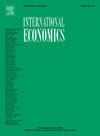恐怖主义与金融的联系取决于全球化和非洲的治理动态
引用次数: 0
摘要
本文研究了恐怖主义对金融发展的影响,以及全球化和治理如何缓和恐怖主义对非洲金融发展的影响。本研究采用两个恐怖主义指标,即恐怖主义事件数量和恐怖主义死亡人数。该方法涉及34个非洲国家从1996年到2018年的汇总数据技术。POLS、Driscoll-Kraay和new - west标准误差修正的结果表明,恐怖主义不利于金融发展。从交互回归来看,有三个主要趋势是明显的。首先,恐怖主义动态始终对金融发展产生无条件的负面影响。其次,全球化和治理动态缓和了恐怖主义动态,从而广泛地对金融发展产生负面净效应。第三,调节变量将对金融发展的净影响从负向正逆转的政策阈值为:(i)恐怖事件发生率为82.00万贸易(占GDP的%)和16.2500外国直接投资(占GDP的%),(ii)恐怖死亡人数为1.1685贸易(占GDP的%)。计算出的阈值在经济上有意义,在政策影响方面也有价值,因为它们在统计范围内。其结果对于恐怖主义和金融发展的替代措施来说是稳健的。讨论了影响。本文章由计算机程序翻译,如有差异,请以英文原文为准。
The terrorism-finance nexus contingent on globalisation and governance dynamics in Africa
This paper investigates the effect of terrorism on financial development and how globalisation and governance moderate the incidence of terrorism on financial development in Africa. Two terrorism indicators are adopted for this study, namely, the number of terrorism incidences and number of terrorism deaths. The methodology involves the pooled data technique running from 1996 to 2018 for 34 African countries. The results from the POLS, Driscoll-Kraay and the Newey-West standard error corrections show that terrorism is detrimental to financial development. From the interactive regressions, three major tendencies are apparent. First, terrorism dynamics consistently have an unconditional negative effect on financial development. Second, the globalization and governance dynamics moderate the terrorism dynamics to broadly induce a negative net effect on financial development. Third, policy thresholds at which the moderating variables reverse the net effect on financial development from negative to positive are: (i) 82.0000 trade (% of GDP) and 16.2500 FDI (% of GDP) for the incidence of terror and (ii) 1.1685 trade (% of GDP) for terror deaths. The computed thresholds make economic sense and worthwhile in terms of policy implications because they are within statistical range. The result is robust to alternative measures of terrorism and financial development. Implications are discussed.
求助全文
通过发布文献求助,成功后即可免费获取论文全文。
去求助
来源期刊

International Economics
Economics, Econometrics and Finance-Economics, Econometrics and Finance (all)
CiteScore
6.30
自引率
0.00%
发文量
74
审稿时长
71 days
 求助内容:
求助内容: 应助结果提醒方式:
应助结果提醒方式:


